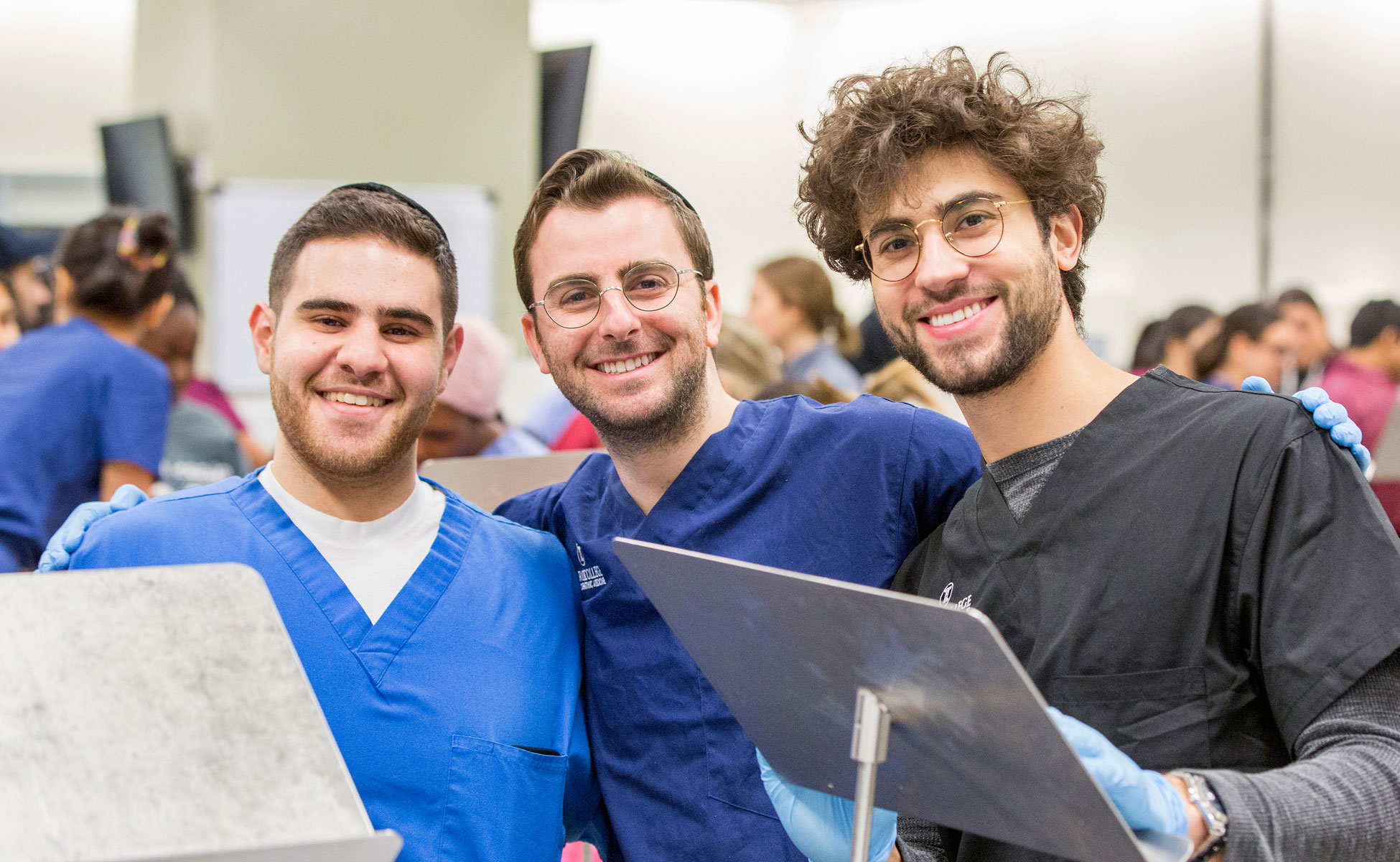The MedAchieve Scholars Program is the brainchild of Touro College of Osteopathic Medicine (TouroCOM) Harlem student, Nami, who wanted to see an increase in doctors coming out of his hometown. Nami sought to partner with the existing youth program, the East Harlem Tutorial Program, which has prepared Harlem students for college since 1958. In 2009 this dream became a reality as Nami, with the help of TouroCOM, created the Pre-Pre-Med Program (PPMP) – a one-year elective course offered by the East Harlem Tutorial Program. This elective course was run by student doctors at the TouroCOM Harlem campus and took place at the TouroCOM campus. The student doctors administrated this new program, created new curriculum and training courses, and acted as mentors to high school students in the program. The PPMP introduced students to medical sciences, osteopathic medicine, foundations in medical and scientific research, and laboratory science.
During the fall of 2012, PPMP student directors Caitlin Norcross and Christianna Stuart along with PPMP faculty advisor Dr. Stephen Jones thought to use a Learning Model System (LMS) similar to the one employed at TouroCOM to teach the medical school curriculum to student physicians. By introducing proven curriculum delivery methods and the iclicker system and Examsoft software to track student outcomes for the PPMP, they saw that with proper planning, coordination, and execution, the PPMP can recruit more high school students and extend the “pipeline” system by helping to prepare high school students for entrance into science based college programs and an eventual career in medicine. These discussions regarding implementation of the new LMS and recruitment led to the creation of the MedAchieve Scholars program.
The year-long PPMP was rebranded as “MedStart” and a supplementary second-year program titled “MedExcel” (launched in fall 2014) was created to further educate and train high school students who are actively interested and dream of becoming the doctors of tomorrow.
Past Leadership
Harlem Co-Directors
2023-2024 Co-Directors: Greg Smith, Kavya Arvind, Varsha Sahoo, Maya Hamaker, Shamina Haque
2022-2023 Co-Directors: Robert Valencia, Nawrin Nishat, Gabriel Chavez, Charlotte Levy, Judah Stiefel
2021-2022 Co-Directors: Mollie Schear, Chicky Butler, Conner Fleurat, Doris Descorbeth, Vaishvi Jhaveri
2020-2021 Co-Directors: Ndeye Kane Diaw, Adal Abonamah, Abraham Abdulrazzak, Rita Kumar, Jessica Bedi
2019-2020 Co-Directors: Ritesh Akkisetty, Andrew Chandler, Rosemary Lu, Olivia Mobarakai
2018-2019 Co-Directors: Nick Ingram, Shreel Parikh, Neel Patel, Avni Sheth
2017-2018 Co-Directors: Saagar Seth, Srilatha Eadara, Grace Nesheiwat, Sarika Ziemann
2016-2017 Co-Directors: Hunter Hayes, Shanel Mehta, Amber Pinson
2015-2016 Co-Directors: Jovanna Madray, Roopa Patel
2014-2015 Co-Directors: Mike Ward, Ilana Stein
2013-2014 Co-Directors: Snaha Sanghvi, Karen Justiniano
2012-2013 Co-Directors: Cristianna Anderson, Caitlin Norcross
Montana Co-Directors
2023-2024 Co-Directors: Lan Nguyen, Navneet Kaur, Amrita Kaur, Erin Shannon, Aneet Sidhu, Tara Sanjabi
Our Mission
The mission of the MedAchieve Scholars Program is to provide high school students from local communities with an introduction to the basic and medical sciences.
Our Goals
- To encourage high school students from the local community to become physicians and health care providers.
- To encourage future health care providers to work in Harlem or another Primary Health Care Shortage Area within the United States.
- To foster curiosity in medical science and encourage students to pursue science majors in college.
- To strengthen scientific principles and practices that complement the education provided by each student’s high school science curriculum.
- To provide a basic hands-on laboratory experience with an introduction to laboratory safety practices and protocol.
- To introduce students to osteopathic medicine.
- To promote healthy living and provide students with an understanding of pertinent topics in healthcare which are prevalent in their community.


